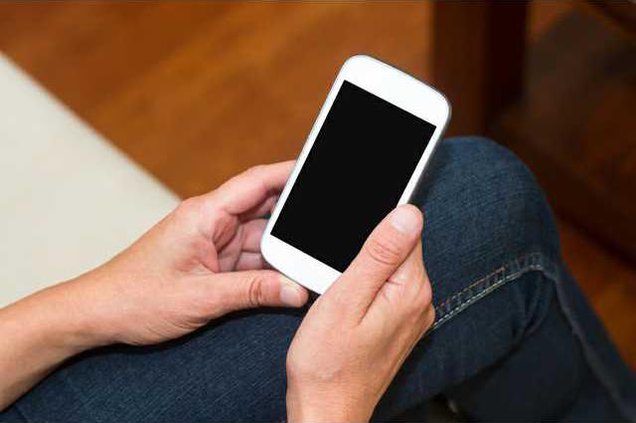Roughly half of all smartphone users dont just like their devices, they cant even imagine life without them.
According to a recent report by Gallup, 46 percent of smartphone users say they cant imagine their lives without a smartphone.
Smartphones emerged as a mass-market product less than a decade ago, Gallups Lydia Saad wrote about the report. Yet already 46 percent of American smartphone users have what might be called smartphone amnesia.
The report also found women are more likely to feel this way than men. The same goes for younger Americans versus old.
As a result, women under 30 are the most likely of all gender/age groups to feel this way, Saad explained.
While the social implications of such a shift have been well-documented, social scientists have become increasingly concerned with one aspect of our lives that smart devices seem to be impeding: parenting.
According to The New York Times Jane E. Brody, cellphones, tablets and laptops dont only act as a distraction for parents, though they do that too, their use also acts as a form of training for their children.
Young children learn by example, often copying the behavior of adults, Brody wrote. I often see youngsters in strollers or on foot with a parent or caretaker who is chatting or texting on a cellphone instead of conversing with the children in their charge.
Such behavior, according to Brody, is a lesson for children in how not to be social.
The negative impact of screen-glued parents goes beyond just having "Angry Birds" obsessed children. As Brody wrote in a previous column, what she calls screen addiction is doing some very serious damage on youth.
Parents, grateful for ways to calm disruptive children and keep them from interrupting their own screen activities, seem to be unaware of the potential harm from so much time spent in the virtual world, Brody wrote. Those harms include poor social interaction skills and even subpar school performance.
When we are with our children, we need to be with our children, pediatrician Jane Scott wrote in The Washington Post last year. Not with them except for the part of us thats reading emails, tweeting and checking Facebook.
It seems that for many parents, imagining a life without a smartphone may be hard, but the consequences of living constantly glued to a screen are even worse.
According to a recent report by Gallup, 46 percent of smartphone users say they cant imagine their lives without a smartphone.
Smartphones emerged as a mass-market product less than a decade ago, Gallups Lydia Saad wrote about the report. Yet already 46 percent of American smartphone users have what might be called smartphone amnesia.
The report also found women are more likely to feel this way than men. The same goes for younger Americans versus old.
As a result, women under 30 are the most likely of all gender/age groups to feel this way, Saad explained.
While the social implications of such a shift have been well-documented, social scientists have become increasingly concerned with one aspect of our lives that smart devices seem to be impeding: parenting.
According to The New York Times Jane E. Brody, cellphones, tablets and laptops dont only act as a distraction for parents, though they do that too, their use also acts as a form of training for their children.
Young children learn by example, often copying the behavior of adults, Brody wrote. I often see youngsters in strollers or on foot with a parent or caretaker who is chatting or texting on a cellphone instead of conversing with the children in their charge.
Such behavior, according to Brody, is a lesson for children in how not to be social.
The negative impact of screen-glued parents goes beyond just having "Angry Birds" obsessed children. As Brody wrote in a previous column, what she calls screen addiction is doing some very serious damage on youth.
Parents, grateful for ways to calm disruptive children and keep them from interrupting their own screen activities, seem to be unaware of the potential harm from so much time spent in the virtual world, Brody wrote. Those harms include poor social interaction skills and even subpar school performance.
When we are with our children, we need to be with our children, pediatrician Jane Scott wrote in The Washington Post last year. Not with them except for the part of us thats reading emails, tweeting and checking Facebook.
It seems that for many parents, imagining a life without a smartphone may be hard, but the consequences of living constantly glued to a screen are even worse.








